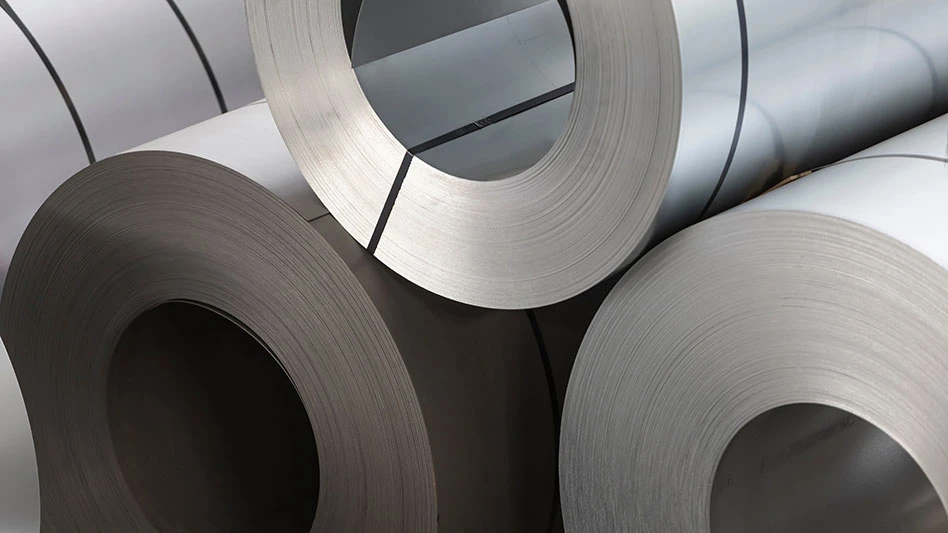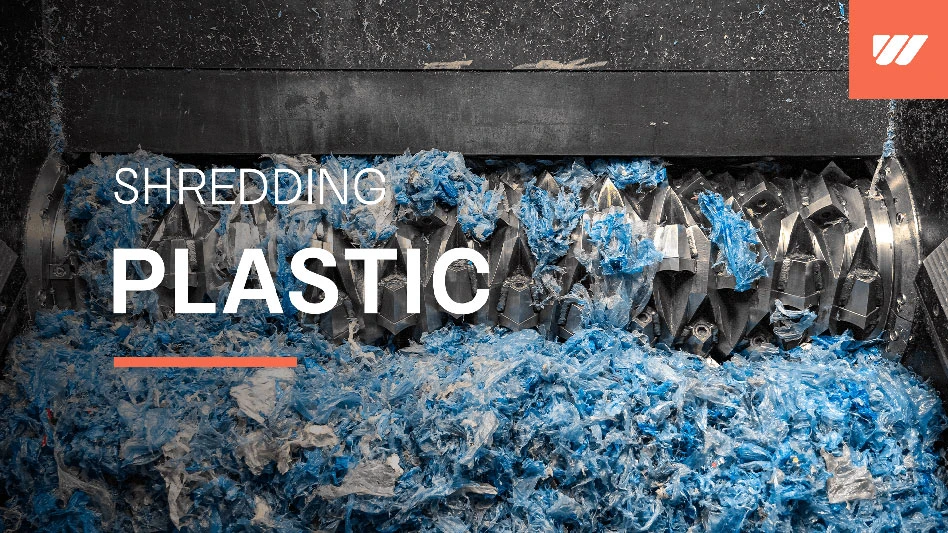
Milan Noga reco | stock.adobe.com
The most recent version of the Foreign Pollution Fee Act has been introduced U.S. Sens. Bill Cassidy, a Republican from Louisiana, and Lindsey Graham, a Republican from South Carolina.
The bill’s sponsors say it would level the playing field for American manufacturers and workers by holding nonmarket economies like China accountable for their unfair trade practices and putting America’s efficient manufacturers at the center of industrial strategy. As a result, they say, the U.S. would strengthen its economic resilience, reduce supply chain dependence on adversaries and reward production innovation.
The text of the bill reads: “On average, goods produced in China generate more than three times the carbon emissions of equivalent American-made goods, while Russian-made goods produce five times the emissions, which gives foreign polluters an unfair cost advantage over American manufacturers.” It later adds that China is responsible for 30 percent of global carbon emissions.
Federal environmental regulations impose an estimated $400 billion in annual costs on the U.S. economy, according to the bill, which would impose a fee, which varies by country and covered product, for imports into the United States in an attempt to level the playing field. That fee would be "determined in such manner as to achieve a linear correlation between the variable charge and the pollution intensity difference of products," the bill states.
Industry sectors covered by the Foreign Pollution Fee Act include iron, steel, aluminum, cement, glass, fertilizer, hydrogen, solar components and certain battery inputs.
Updated bill
The sponsors say the original Foreign Pollution Fee Act was updated to incorporate feedback received after they shared a discussion draft in December of last year following Cassidy’s “Louisiana Energy Security Summit: Unleashing America Abundance in a Changing Global Landscape.” That summit brought together leaders from the federal, state and local governments, industry and the research community in Baton Rouge to discuss trade and manufacturing policy that puts Americans first. Cassidy and Graham introduced an earlier version of the bill in 2023.
Graham and Cassidy say theForeign Pollution Fee Act would help American manufacturers compete and thrive in a number of ways:
- Combats China’s exploitation of trade rules by countering the unfair practices of nonmarket economies such as China.
- Strengthens global supply chain resilience by diversifying trade relationships to reduce dependence on adversarial nations, which also enhances national security.
- Revitalizes American manufacturing by discouraging imports of pollution-intensive goods, bringing jobs back to the U.S., strengthening domestic industries and reducing reliance on foreign suppliers.
- Expands U.S. export markets as high-polluting countries modernize their industries and demand American-made inputs, feedstocks and technologies, opening new opportunities for U.S. exports.
- Deepens trade ties with allies by promoting partnerships with nations that share our economic and environmental values, building a coalition against predatory practices of the Chinese Communist Party and supporting emerging markets and allies alike.
- Rewards leadership in cleaner manufacturing by incentivizing international partners to adopt cleaner production methods while ensuring domestic manufacturers maintain a competitive edge by continuing to lead in industrial decarbonization.
“Other countries can decrease their cost of manufacturing by 20 percent by not enforcing the laws we take for granted,” Cassidy says. “This means they take our jobs too. This is wrong. It’s time the U.S. promotes fair trade, preserves jobs in Louisiana and elsewhere, and revives American manufacturing.”
Graham adds, “It is long past time that the polluters of the world, like China and others, pay a price for their policies. This bill calls out the foreign polluters and rewards American businesses who are doing the right thing/ We are leveling the playing field, and American manufacturers and business will be the biggest beneficiaries.”
Support for the bill
Supporters of the Foreign Pollution Fee Act include the Steel Manufacturers Association, U.S. OCTG Manufacturers Association, Portland Cement Association, Solar Energy Manufacturers for America Coalition, Ultra Low Carbon Solar Alliance, America First Policy Institute, Carbon Removal Alliance, Heirloom, Climeworks, Climate Leadership Council, Cleaner Economy Coalition, the Industrial Innovation Initiative, Rainey Center Freedom Project, RepublicEN.org, Carbon Upcycling, Ceres, SAFE Center for Strategic Industrial Materials, Citizens’ Climate Lobby, ElementUSA and Evangelical Environmental Network.
“The Steel Manufacturers Association thanks Sen. Cassidy and Sen. Graham for introducing the Foreign Pollution Fee Act,” says Philip K. Bell, president of the Steel Manufacturers Association. “This critical legislation will provide another strong path to ensuring fair trade. America has a tremendous competitive advantage because of its lower emissions manufacturing processes. We make the cleanest steel in the world. This is because the United States lets markets choose the most efficient production technologies and raw materials. However, poor overseas environmental standards, compliance and enforcement create an artificial advantage in trade that harms American producers and workers.
"Current U.S. trade countermeasures are not specifically designed to address unfair trade practices related to the environment. Imposing a fee on foreign pollution helps monetize our environmental advantage and level the playing field. We look forward to working with Sens. Cassidy and Graham on the Foreign Pollution Fee Act to support American jobs and competitiveness.”
“The Foreign Pollution Fee Act would create a fairer market for domestic manufacturers and foster innovation in the U.S.,” says Giana Amador, executive director of the Carbon Removal Alliance. “We commend Senator Cassidy for his leadership in protecting American entrepreneurs and advancing a homegrown carbon removal industry poised to generate jobs and billions in economic growth nationwide.”
Sponsored Content
Still relying on manual sorters?
Let AI do the heavy lifting. Waste Robotics delivers reliable, high-performance robots tailored for complex waste streams. They require minimal maintenance, are easy to operate, and are designed to boost your recovery rates. Smarter sorting starts with the right partner. Waste Expo Booth #1969 & REMA #2843
Click here to see our robots in action!Daniel Nathan, chief project development officer for Climeworks, Austin, Texas, says, “The Foreign Pollution Fee Act is an important way to protect and expand U.S. manufacturers’ strategic advantage in meeting rising global demand for decarbonized goods and services. Climeworks is proud to support Sen. Cassidy’s initiative, which we believe will strengthen vital supply chain resilience.”
“Sen. Cassidy’s introduction of the Foreign Pollution Fee Act is a significant step forward in capitalizing on U.S. industry’s superior environmental performance and creating a more level playing field for years to come,” says Greg Bertelsen, CEO for Climate Leadership Council, Washington. “By rewarding American firms for their lower pollution and holding higher emitters accountable, we will boost U.S. manufacturers, create more jobs and secure critical supply chains. The Council looks forward to working with Senator Cassidy and a growing coalition of stakeholders to advance a foreign pollution fee as a tool for leveraging America’s carbon advantage, strengthening the U.S. economy and reducing global emissions.”
“For too long, American industry has been competing on an uneven playing field on the global stage while bad actors like the Chinese Communist Party have adhered to unacceptably low standards to outcompete us on cost,” adds Joe Quinn, executive director of SAFE Center for Strategic Industrial Materials. “By turning that uneven playing field into a competitive advantage for industries like batteries, steel and aluminum that are critical to both national and energy security, the Foreign Pollution Fee Act will make the U.S. more self-reliant and restructure markets to reward innovation, not pollution.”
The Aluminum Association, in its "Aluminum Week" newsletter dated April 11, says it is reviewing the bill and appreciates its goal of holding nonmarket economies like China accountable for their unfair trade practices.
Get curated news on YOUR industry.
Enter your email to receive our newsletters.
More from our latest newsletter
- Unifi launches Repreve with Ciclo technology
- Recycled PP from Polykemi, Rondo Plast used in flood protection product
- Study looks at potential impact of chemical recycling on global plastic pollution









